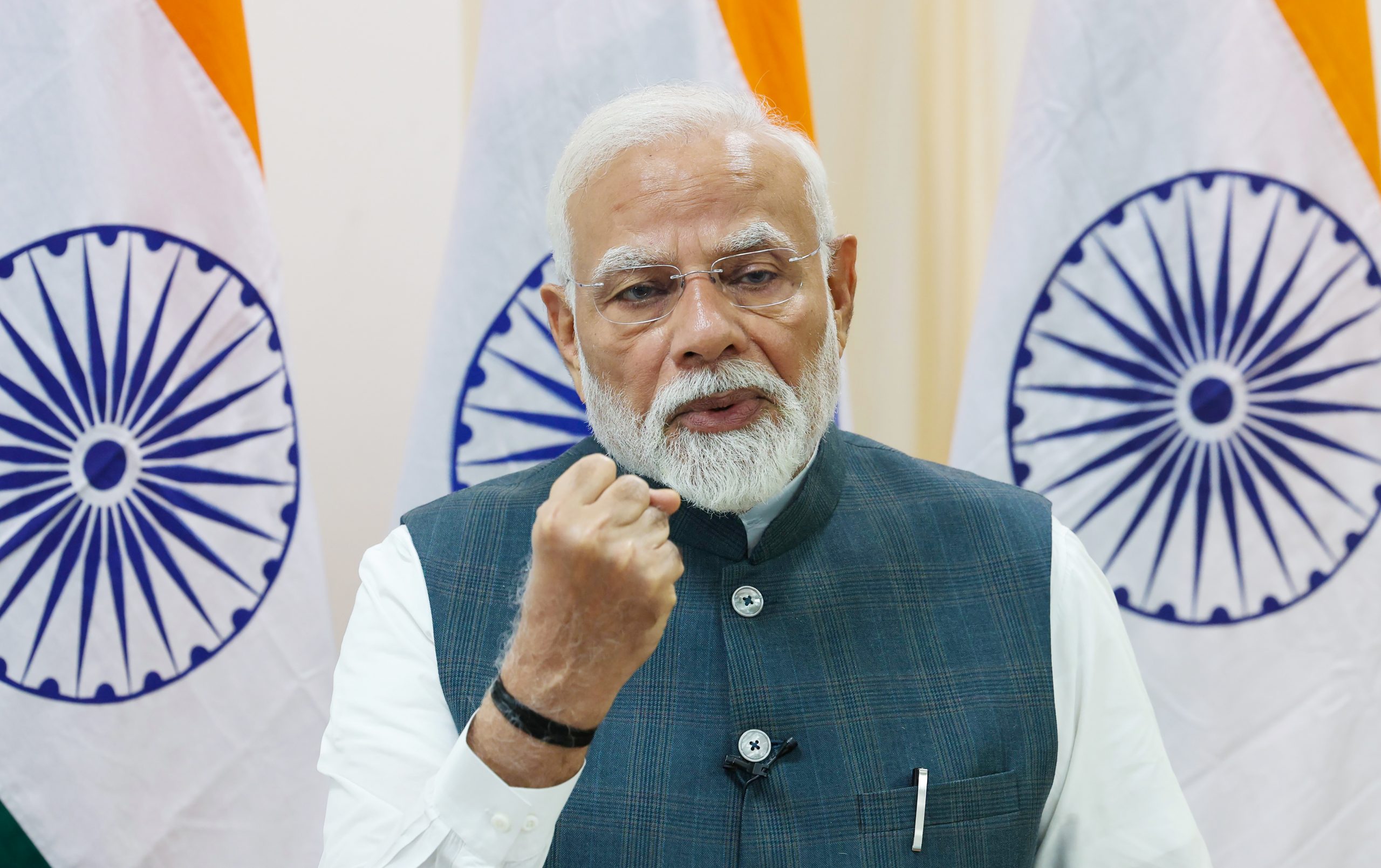Marking the 50th anniversary of the imposition of Emergency in India, Prime Minister Narendra Modi paid heartfelt tribute to the countless Indians who stood in defence of democracy during what he described as one of the darkest chapters in the nation’s history.
Observing June 25 as Samvidhan Hatya Diwas (Constitution Murder Day), the Prime Minister reflected on the grave assault on constitutional values that occurred during the Emergency period from 1975 to 1977. He highlighted how fundamental rights were suspended, press freedom was extinguished, and thousands of political leaders, social workers, students, and ordinary citizens were imprisoned.
In a public statement, PM Modi reaffirmed the government’s unwavering commitment to the Constitution and emphasized the importance of working collectively to realize the vision of a Viksit Bharat (Developed India). He noted that the anti-Emergency movement served as a critical learning experience and a reminder of the importance of preserving the democratic framework.
Calling on all those who lived through or were affected by the Emergency, the Prime Minister encouraged citizens to share their stories and memories on social media. He said this would help create awareness among today’s youth about the events that took place during those turbulent years.
In a series of posts on X, the Prime Minister remarked, “Today marks fifty years since one of the darkest chapters in India’s democratic history, the imposition of the Emergency. The people of India mark this day as Samvidhan Hatya Diwas. On this day, the values enshrined in the Indian Constitution were set aside, fundamental rights were suspended, press freedom was extinguished and several political leaders, social workers, students and ordinary citizens were jailed. It was as if the Congress Government in power at that time placed democracy under arrest.”
He further stated, “No Indian will ever forget the manner in which the spirit of our Constitution was violated, the voice of Parliament muzzled and attempts were made to control the courts. The 42nd Amendment is a prime example of their shenanigans. The poor, marginalised and downtrodden were particularly targeted, including their dignity insulted.”
Saluting the resilience of those who resisted the Emergency, Modi said, “We salute every person who stood firm in the fight against the Emergency. These were people from across India, from all walks of life and from diverse ideologies, united in their resolve to protect the democratic fabric of the nation. Their collective efforts ultimately led to the restoration of democracy and the defeat of the then Congress Government in the subsequent elections.”
The Prime Minister also reiterated the present government’s resolve to uphold constitutional principles and pursue inclusive national development. “We also reiterate our commitment to strengthening the principles in our Constitution and working together to realise our vision of a Viksit Bharat. May we scale new heights of progress and fulfil the dreams of the poor and downtrodden,” he added.
Sharing personal memories, PM Modi recalled, “When the Emergency was imposed, I was a young RSS Pracharak. The anti-Emergency movement was a learning experience for me. It reaffirmed the vitality of preserving our democratic framework. At the same time, I got to learn so much from people across the political spectrum.”
The Prime Minister also mentioned the recently released book The Emergency Diaries, which documents his experiences during that time. He noted that the foreword to the book was written by former Prime Minister H.D. Deve Gowda, a veteran of the anti-Emergency movement.
“I call upon all those who remember those dark days of the Emergency or those whose families suffered during that time to share their experiences on social media. It will create awareness among the youth of the shameful time from 1975 to 1977,” PM Modi said.
The solemn occasion was a reminder of the resilience of India’s democratic institutions and the enduring spirit of its people in the face of authoritarianism.














